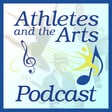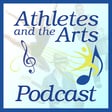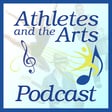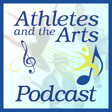
New Orleans Musician's Clinic: Protecting the Sound of Jazz
We shine our spotlight on the New Orleans Musician's Clinic, the only low or no-cost medical clinic in the United State dedicated to caring for performing artists. They have been a founding member of Athletes and the Arts since our launch 10 years ago, and their outreach includes preventing noise-induced hearing loss. Joining Yasi and Steven on the show are Taylor Cohen, Public Health Director, Kalie Falls, Community Outreach, Ngoma Numu Jordan, New Orleans musician, and Dr. Marshall Chasin, director of research and chief audiologist of the Musicians' Clinics of Canada.
For more information on the clinic, go to https://neworleansmusiciansclinic.org
For Dr Chasin's clinic, go to https://marshallchasinassociates.ca/index.htm
For Athletes and the Arts, go to https://www.athletesandthearts.com
To listen to Ngoma's 2021 album, "Ngoma Numu", go to https://music.apple.com/us/album/ngoma-numu/1578706106



